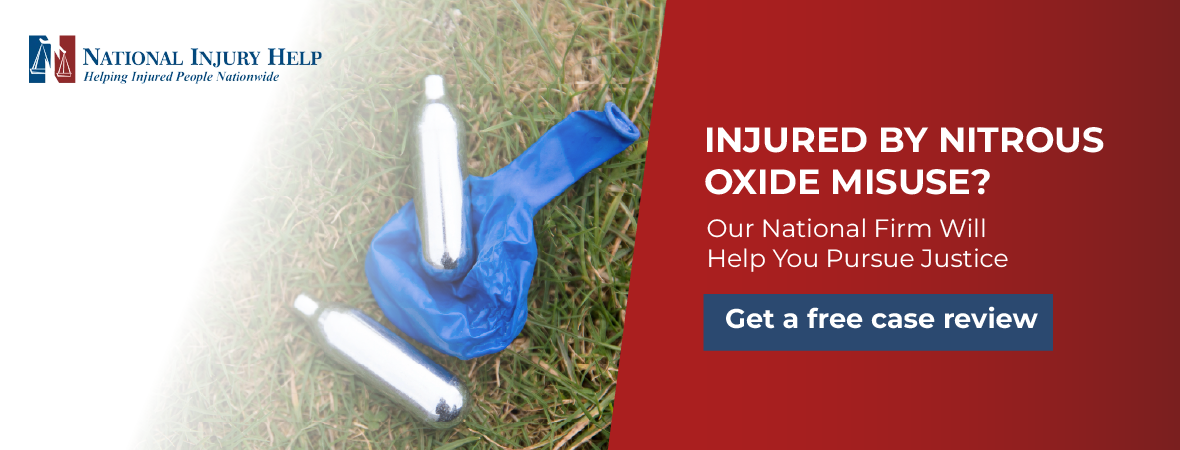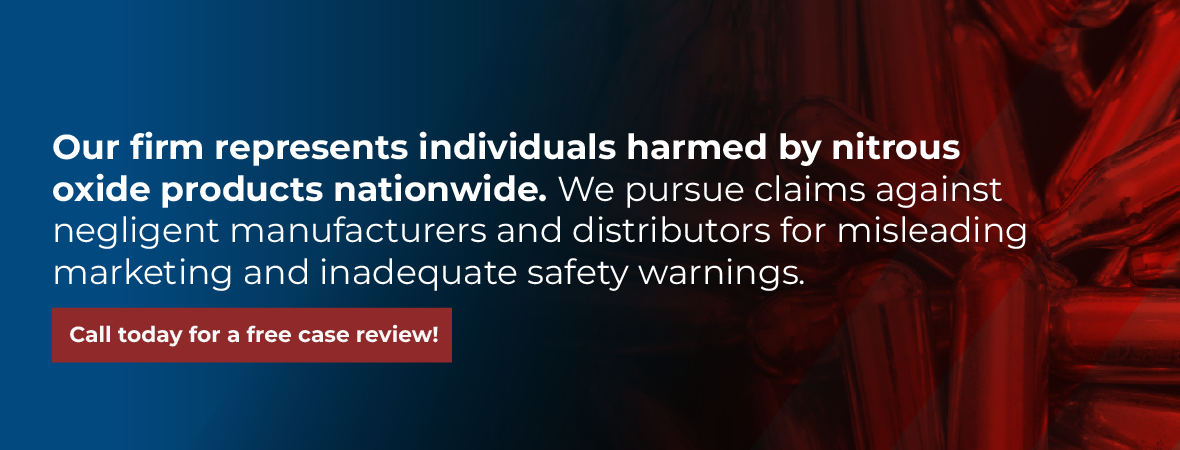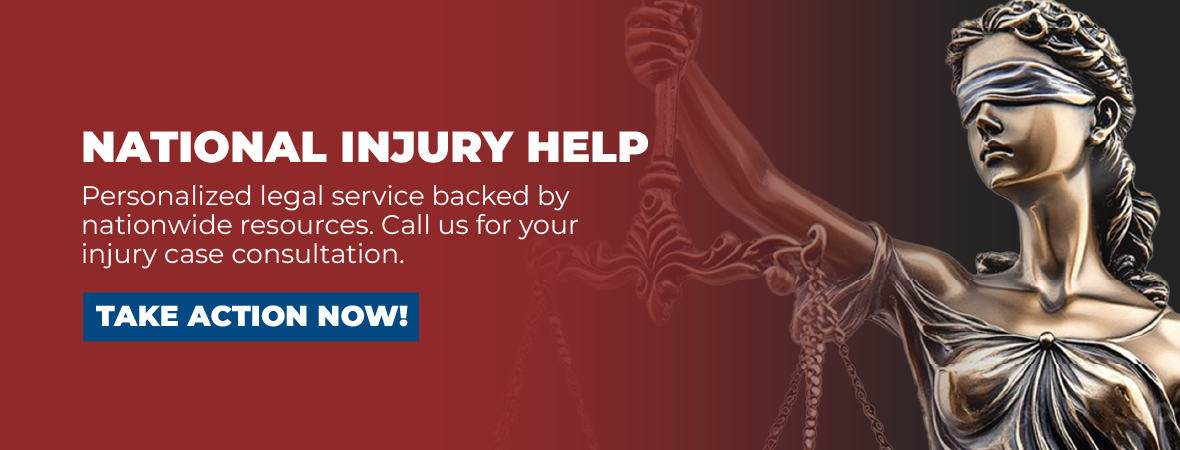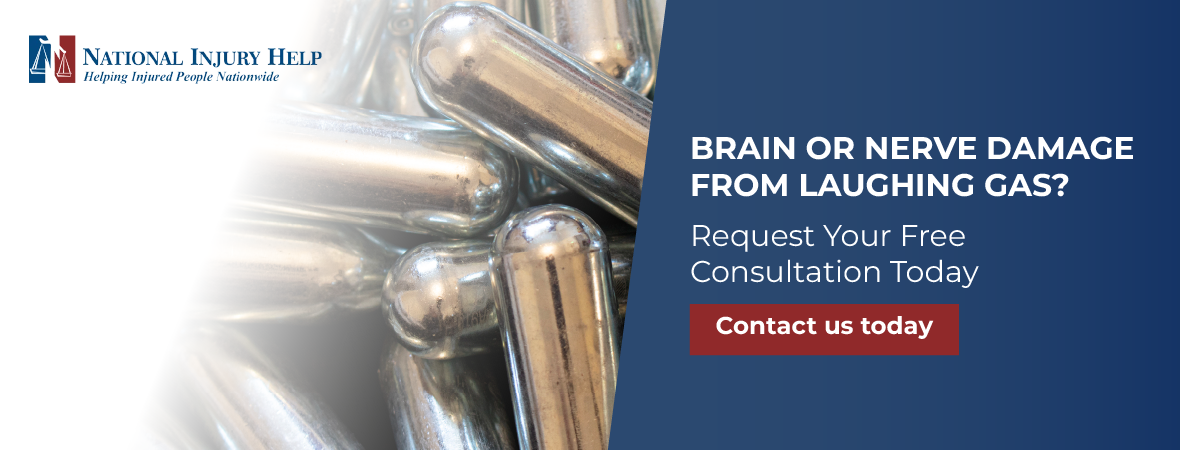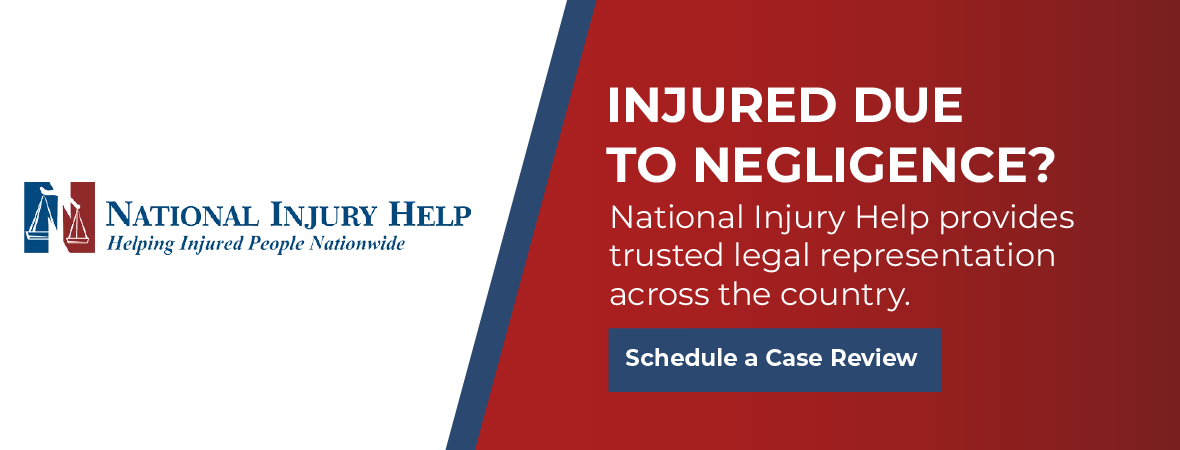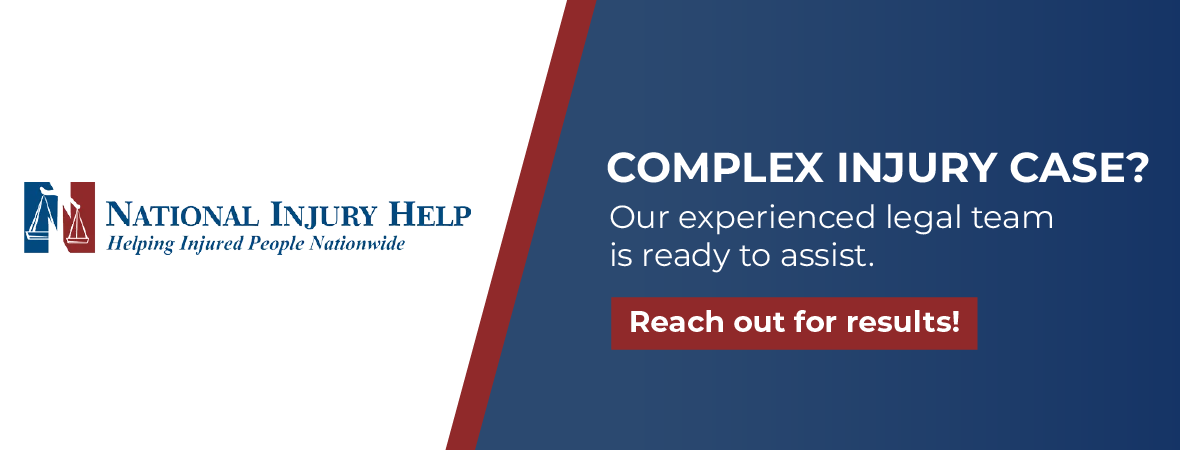- Home
- Accident & Injury
- Areas We Serve
- Arizona
- Arizona
- Avondale
- Avondale Personal Injury Lawyer
- Avondale Car Accident Lawyer
- Avondale Truck Accident Lawyer
- Avondale Bicycle Accident Lawyer
- Avondale Pedestrian Accident Lawyer
- Avondale Motorcycle Accident Lawyer
- Avondale Rideshare Accident Lawyer
- Avondale Wrongful Death Attorney
- Avondale Dog Bite Lawyer
- Avondale Brain Injury Attorney
- Buckeye
- Buckeye Personal Injury Lawyer
- Buckeye Car Accident Lawyer
- Buckeye Truck Accident Lawyer
- Buckeye Motorcycle Accident Lawyer
- Buckeye Bicycle Accident Lawyer
- Buckeye Pedestrian Accident Lawyer
- Buckeye Rideshare Accident Lawyer
- Buckeye Wrongful Death Attorney
- Buckeye Dog Bite Lawyer
- Buckeye Brain Injury Attorney
- Casa Grande
- Casa Grande Personal Injury Lawyer
- Casa Grande Car Accident Lawyer
- Casa Grande Truck Accident Lawyer
- Casa Grande Motorcycle Accident Lawyer
- Casa Grande Bicycle Accident Lawyer
- Casa Grande Pedestrian Accident Lawyer
- Casa Grande Rideshare Accident Lawyer
- Casa Grande Wrongful Death Attorney
- Casa Grande Brain Injury Attorney
- Casa Grande Dog Bite Lawyer
- Chandler
- Chandler Personal Injury Lawyer
- Chandler Car Accident Lawyer
- Chandler Truck Accident Lawyer
- Chandler Motorcycle Accident Lawyer
- Chandler Bicycle Accident Lawyer
- Chandler Rideshare Accident Lawyer
- Chandler Pedestrian Accident Lawyer
- Chandler Wrongful Death Attorney
- Chandler Dog Bite Lawyer
- Chandler Brain Injury Attorney
- Florence
- Florence Personal Injury Lawyer
- Florence Car Accident Lawyer
- Florence Truck Accident Lawyer
- Florence Motorcycle Accident Lawyer
- Florence Bicycle Accident Lawyer
- Florence Pedestrian Accident Lawyer
- Florence Rideshare Accident Lawyer
- Florence Dog Bite Accident Lawyer
- Florence Brain Injury Attorney
- Florence Wrongful Death Attorney
- Gilbert
- Gilbert Personal Injury Lawyer
- Gilbert Car Accident Lawyer
- Gilbert Truck Accident Lawyer
- Gilbert Motorcycle Accident Lawyer
- Gilbert Bicycle Accident Lawyer
- Gilbert Pedestrian Accident Lawyer
- Gilbert Rideshare Accident Lawyer
- Gilbert Wrongful Death Attorney
- Gilbert Dog Bite Lawyer
- Gilbert Brain Injury Attorney
- Glendale
- Glendale Personal Injury Lawyer
- Glendale Car Accident Lawyer
- Glendale Truck Accident Lawyer
- Glendale Motorcycle Accident Lawyer
- Glendale Bicycle Accident Lawyer
- Glendale Pedestrian Accident Lawyer
- Glendale Rideshare Accident Lawyer
- Glendale Wrongful Death Attorney
- Glendale Dog Bite Lawyer
- Glendale Brain Injury Attorney
- Goodyear
- Goodyear Personal Injury Lawyer
- Goodyear Car Accident Lawyer
- Goodyear Truck Accident Lawyer
- Goodyear Motorcycle Accident Lawyer
- Goodyear Bicycle Accident Lawyer
- Goodyear Rideshare Accident Lawyer
- Goodyear Pedestrian Accident Lawyer
- Goodyear Wrongful Death Attorney
- Goodyear Brain Injury Attorney
- Goodyear Dog Bite Lawyer
- Mesa
- Peoria
- Phoenix
- Phoenix Personal Injury Lawyer
- Phoenix Car Accident Lawyer
- Phoenix Truck Accident Lawyer
- Phoenix Motorcycle Accident Lawyer
- Phoenix Bicycle Accident Lawyer
- Phoenix Pedestrian Accident Lawyer
- Phoenix Rideshare Accident Lawyer
- Phoenix Wrongful Death Attorney
- Phoenix Dog Bite Lawyer
- Phoenix Brain Injury Attorney
- Scottsdale
- Scottsdale Personal Injury Lawyer
- Scottsdale Car Accident Lawyer
- Scottsdale Truck Accident Lawyer
- Scottsdale Motorcycle Accident Lawyer
- Scottsdale Bicycle Accident Lawyer
- Scottsdale Pedestrian Accident Lawyer
- Scottsdale Rideshare Accident Lawyer
- Scottsdale Wrongful Death Attorney
- Scottsdale Brain Injury Attorney
- Scottsdale Dog Bite Lawyer
- Surprise
- Surprise Personal Injury Lawyer
- Surprise Car Accident Lawyer
- Surprise Truck Accident Lawyer
- Surprise Motorcycle Accident Lawyer
- Surprise Bicycle Accident Lawyer
- Surprise Pedestrian Accident Lawyer
- Surprise Rideshare Accident Lawyer
- Surprise Wrongful Death Attorney
- Surprise Dog Bite Lawyer
- Surprise Brain Injury Attorney
- Tempe
- Tucson
- Yuma
- California
- Washington
- Yakima
- Vancouver
- Vancouver Personal Injury Lawyer
- Vancouver Car Accident Lawyer
- Vancouver Brain Injury Attorney
- Vancouver Truck Accident Lawyer
- Vancouver Motorcycle Accident Lawyer
- Vancouver Bicycle Accident Lawyer
- Vancouver Pedestrian Accident Lawyer
- Vancouver Rideshare Accident Lawyer
- Vancouver Wrongful Death Attorney
- Vancouver Dog Bite Lawyer
- Washington State
- Washington State Personal Injury
- Washington State Car Accident Lawyer
- Washington State Brain Injury Attorney
- Washington State Truck Accident Lawyer
- Washington State Motorcycle Accident Lawyer
- Washington State Bicycle Accident Lawyer
- Washington State Pedestrian Accident Lawyer
- Washington State Rideshare Accident Lawyer
- Washington State Wrongful Death Attorney
- Washington State Dog Bite Lawyer
- Tacoma
- Spokane
- Spokane Personal Injury Lawyer
- Car Accident Lawyer in Spokane
- Spokane Brain Injury Attorney
- Spokane Truck Accident Lawyer
- Spokane Motorcycle Accident Lawyer
- Spokane Bicycle Accident Lawyer
- Spokane Rideshare Accident Lawyer
- Spokane Pedestrian Accident Lawyer
- Spokane Wrongful Death Attorney
- Spokane Dog Bite Lawyer
- Arizona
- Defective Drugs
- Defective Products
- Other Case Types
- Blog
- Contact Us
Hablamos Espanol - Call 24/7 1 (800) 214-1010
If you or a loved one have been affected by nitrous oxide misuse, it’s crucial to understand your rights and options for seeking justice. National Injury Help offers guidance and support during this difficult time. Our experienced attorneys are committed to holding negligent parties accountable and helping victims secure compensation. Contact us today at (800) 214-1010 for a free consultation.
Nitrous oxide, often called laughing gas, has been used safely for more than a century in medical and dental offices. In those settings, it is given in carefully measured doses by trained professionals to help patients relax, manage pain, and stay comfortable during procedures. The problem is that outside of a clinical environment, nitrous oxide is being sold in ways that make it easy for people to misuse it for a quick, short-lived high.
In the United States, nitrous oxide is widely available in small metal cartridges known as whippets and in larger canisters sold under names like Galaxy Gas. These products are marketed as tools for whipping cream in kitchens, but they are often inhaled directly for recreational purposes. That use is dangerous and can lead to serious injuries, long-term health problems, and in some cases, death.
When someone inhales nitrous oxide straight from a canister, it replaces the oxygen in their lungs and brain almost instantly. This can cause dizziness, confusion, loss of coordination, blackouts, and accidents. Prolonged or repeated use can result in nerve damage, memory loss, and permanent cognitive issues. These dangers are real, yet the products are still sold in ways that make misuse easy.
Why people are filing nitrous oxide lawsuits
Across the country, an increasing number of individuals and families are filing legal claims referred to as Nitrous Oxide Lawsuits, Whippet Lawsuits, and Galaxy Gas Lawsuits. These cases typically argue that manufacturers, distributors, or retailers did not take adequate measures to prevent the abuse of these products, despite being aware that misuse was prevalent. In some lawsuits, plaintiffs assert that companies marketed or packaged these products in a manner that promoted recreational use rather than their intended purpose..
Some cases involve product liability claims, where the design, packaging, or labeling is alleged to be unreasonably dangerous. Others involve wrongful death claims from families who lost loved ones to nitrous oxide-related incidents. Survivors who suffered brain injuries or other long-term health problems may seek compensation for medical care, rehabilitation, lost income, and emotional suffering.
How National Injury Help can assist
National Injury Help works with individuals harmed by defective or dangerous products, including nitrous oxide. Our attorneys understand how to investigate these cases, gather the right evidence, and hold companies accountable when their negligence causes harm. We understand that pursuing a lawsuit can be overwhelming, especially when dealing with medical or emotional recovery, so we focus on guiding clients through each step of the process.
If you or someone you love has been affected by nitrous oxide misuse, our team can explain your legal options and connect you with an attorney experienced in mass tort and personal injury litigation. We offer free consultations so you can get the information you need before making any decisions.
A growing problem in the US
While nitrous oxide misuse has existed for decades, it has become more common in recent years. Easy online sales, discreet shipping, and marketing that appeals to younger audiences have made these products more accessible than ever. Social media trends have also played a role, with videos and posts glamorizing dangerous inhalation stunts.
Some states have laws that limit nitrous oxide sales to minors, but enforcement varies widely. In many places, the product is still sold over the counter with minimal restrictions. This lack of regulation is often a key point in lawsuits, as attorneys argue that companies should be doing more to ensure their products are not contributing to preventable harm.
The legal foundation for these claims
The main argument behind most nitrous oxide lawsuits is that companies have a responsibility to address foreseeable misuse. If a manufacturer knows their product is being abused in ways that can cause serious harm, they may be required to take reasonable steps to reduce the risk. This can include stronger warning labels, tamper-resistant packaging, or sales restrictions.
Marketing is another area under scrutiny. If the branding, imagery, or online presence of a nitrous oxide product appears to appeal more to recreational users than to legitimate customers, such as professional bakers, it can strengthen the claim that the company contributed to misuse.
Why this matters for you
If you are reading this, you may already be dealing with the consequences of nitrous oxide misuse, whether personally or through a loved one’s experience. You might have questions about your rights, the potential for compensation, and how to hold the responsible parties accountable. Consulting with our team of lawyers experienced in Whippet Lawsuits and Galaxy Gas Lawsuits is the best way to obtain clear answers.
At National Injury Help, our goal is to ensure that victims and their families have the information and representation they need. If you think you have a case, we encourage you to reach out for a free consultation so you can understand your options and take the next step toward justice.
The Dangers of Nitrous Oxide Abuse
Nitrous oxide may seem harmless to some people because of its history in medical and dental care. When given by trained professionals, it can be a safe and effective sedative. The problem is that recreational use is very different from a controlled medical setting. Inhaling nitrous oxide directly from a canister or balloon is dangerous, and the effects can range from short-term impairment to permanent, life-altering injuries.
How recreational use works
Most recreational users get nitrous oxide from small silver canisters called whippets, or from larger tanks marketed under names like Galaxy Gas. These products are designed for culinary purposes, such as making whipped cream, but they can be easily misused. People often transfer the gas into a balloon before inhaling it, which slows the flow and makes it less cold, but the underlying risks remain the same.
The high from nitrous oxide is brief, usually lasting less than a minute. That short burst of euphoria can make people inhale it repeatedly in a single session, which significantly increases the dangers.
Immediate health risks
When nitrous oxide is inhaled, it rapidly replaces oxygen in the lungs and brain. This can lead to hypoxia, which means the brain and body are deprived of oxygen. Even a few seconds without adequate oxygen can cause:
- Dizziness and loss of balance
- Confusion or disorientation
- Blackouts or fainting
- Short-term memory loss
A person who faints while using nitrous oxide is at risk of falling and sustaining injuries like broken bones, concussions, or facial trauma. In some cases, people have lost consciousness while driving, swimming, or standing near stairs, which can turn dangerous in an instant.
Long-term health effects
The longer and more often someone uses nitrous oxide, the greater the chance of lasting damage. Chronic misuse can lead to vitamin B12 deficiency, which in turn can cause nerve damage and neurological problems. Symptoms may include:
- Numbness or tingling in the hands and feet
- Muscle weakness
- Difficulty walking or coordinating movements
- Memory and concentration problems
- Mood changes or depression
In severe cases, nerve damage can become permanent, leading to partial paralysis or lifelong mobility challenges.
Repeated oxygen deprivation also increases the risk of brain injury. The damage may not be immediately apparent but can surface over time in the form of cognitive impairment, difficulty processing information, and changes in personality or emotional control.
Accidents and secondary injuries
Some of the most serious incidents related to nitrous oxide are not caused by the gas itself, but by accidents that occur while a person is under its influence. Nitrous oxide can impair coordination and slow reaction times, making everyday activities dangerous. Documented cases include:
- Car crashes involving drivers who inhaled nitrous oxide while driving
- Falls from heights or stairs due to loss of balance
- Burns from holding freezing-cold canisters directly against the skin.
- Drownings or near-drownings that happen when people use nitrous oxide near pools or open water
Even a momentary lapse in awareness can lead to catastrophic results.
Statistics on misuse
While nitrous oxide abuse does not receive as much media attention as opioids or alcohol, the numbers show it is a growing concern. According to the Substance Abuse and Mental Health Services Administration (SAMHSA), millions of Americans have tried inhalants at least once, and nitrous oxide is among the most commonly misused. Emergency departments across the country report increasing visits linked to nitrous oxide, ranging from minor injuries to severe neurological conditions.
A 2020 report from the Centers for Disease Control and Prevention noted that inhalant abuse often peaks among young people in their late teens and early twenties. This age group is also more likely to engage in risky behaviors, which can amplify the danger.
Real case examples
One well-known case involved a 21-year-old college student who suffered permanent nerve damage after months of using nitrous oxide at parties. She began experiencing numbness in her legs, which eventually made it difficult to walk. Doctors diagnosed her with a severe vitamin B12 deficiency caused by repeated nitrous oxide inhalation.
In another case, a man in his thirties lost control of his car after inhaling nitrous oxide from a large canister while driving. The crash killed a pedestrian, and the man now faces both criminal charges and civil lawsuits.
These are not isolated incidents. Across the United States, similar tragedies are prompting more people to take legal action against manufacturers, distributors, and retailers who they believe should be doing more to prevent misuse.
The role of manufacturers and sellers
Critics argue that nitrous oxide products are often sold in ways that make recreational use easy. Large canisters can be purchased online with minimal age verification, and some companies package their products in bright, eye-catching designs that appeal to younger consumers. Online listings may use vague or playful language that avoids mentioning whipped cream altogether, making it clear to specific audiences that the product has another intended use.
This has led to claims that manufacturers and sellers either turn a blind eye to abuse or indirectly market their products to people who want to get high. In lawsuits, these practices are often presented as evidence of negligence.
Why these dangers matter in a lawsuit
In personal injury and wrongful death cases related to nitrous oxide, proving the link between the product and the harm is a critical step. Medical records showing hypoxia, brain injury, or nerve damage can help establish that nitrous oxide was the cause. Testimony from doctors, toxicologists, and public health experts can also strengthen a case.
Lawyers may argue that companies could have reduced the risk by including clearer warning labels, using packaging that makes misuse harder, or limiting sales to verified buyers in legitimate industries. If a jury agrees, the injured person or their family may be awarded compensation.
Protecting yourself and your loved ones
The safest choice is to avoid recreational nitrous oxide entirely. If you or someone you care about is already using it, knowing the signs of misuse can help you intervene early. Sudden mood changes, unexplained falls, and persistent tingling in the limbs are all red flags.
For those who have already been injured, speaking with an attorney can provide clarity on whether legal action is possible. The sooner you reach out, the easier it is to gather evidence and build a strong case.
National Injury Help works with clients nationwide who have suffered harm from nitrous oxide. Our legal team understands the medical, scientific, and legal aspects of these cases and can guide you through the process of pursuing a claim.
Legal Aspects of Nitrous Oxide Lawsuits
When someone is injured or killed because of nitrous oxide misuse, the emotional and financial toll can be overwhelming. Medical bills, lost income, and long-term care needs can quickly add up. Many families also struggle with feelings of frustration or anger when they realize the harm could have been prevented. That is where legal action comes in. Nitrous oxide lawsuits are designed to hold manufacturers, distributors, and sometimes even retailers accountable when their actions, or lack of action, contribute to these tragedies.
Legal grounds for filing a lawsuit
Several possible legal theories may apply in a Nitrous Oxide Lawsuit, Whippet Lawsuit, or Galaxy Gas Lawsuit. The right approach depends on the specific facts of each case.
● Negligence
Negligence occurs when a company fails to act with the level of care that a reasonable business would under similar circumstances. For example, if a manufacturer knows their product is widely misused for recreational purposes and does nothing to limit that misuse or warn about the risks, they may be considered negligent. The key elements in a negligence claim include:
- The defendant had a duty of care to the plaintiff.
- The defendant breached that duty.
- The breach directly caused the plaintiff’s injury.
- The plaintiff suffered measurable damages.
● Product liability
Product liability law allows consumers to hold manufacturers and sellers responsible when a defective or dangerous product causes harm. In nitrous oxide cases, this might involve:
- Design defects: The product’s design makes it unreasonably dangerous when misused in foreseeable ways.
- Manufacturing defects: An error occurred during production that made the product unsafe.
- Failure to warn: The product lacked adequate warnings about the dangers of misuse, or the warnings were not clear enough.
● Wrongful death
If someone dies as a result of nitrous oxide misuse, their surviving family members may file a wrongful death lawsuit. These claims can seek compensation for funeral expenses, loss of financial support, loss of companionship, and emotional suffering. In some states, wrongful death lawsuits can also include punitive damages if the defendant’s conduct was especially reckless.
How these lawsuits fit into mass tort litigation
Many nitrous oxide lawsuits are being handled as part of a mass tort. In a mass tort, multiple plaintiffs bring individual claims against one or more defendants based on similar facts. Each case is unique, but the cases are often consolidated for efficiency, especially when the evidence overlaps.
For example, suppose dozens of people across the country were injured after using the same brand of nitrous oxide canisters. In that case, those cases might be grouped together in a federal court through a process called multidistrict litigation (MDL). This allows the parties to share evidence and streamline pretrial proceedings while still letting each plaintiff pursue their own damages.
Mass torts are different from class actions. In a class action, one or a few plaintiffs represent a larger group, and the outcome applies to everyone in the class. In a mass tort, each plaintiff’s case is decided on its own merits, which can result in varying compensation amounts depending on the specific injuries and losses.
Potential legal outcomes
The resolution of a nitrous oxide lawsuit can take several forms.
Settlements
Many cases are resolved through settlement before going to trial. A settlement is an agreement in which the defendant agrees to pay the plaintiff a certain amount of money in exchange for dropping the lawsuit. Settlements can help plaintiffs receive compensation faster and avoid the uncertainty of a trial.
Trial verdicts
If a settlement is not reached, the case may go to trial. A judge or jury will hear evidence and decide whether the defendant is liable, and if so, how much they must pay in damages. Trials can be lengthy and complex, but they can also result in larger awards, especially if the jury is persuaded that the defendant acted recklessly.
Punitive damages
In some cases, courts may award punitive damages in addition to compensatory damages. Punitive damages are meant to punish especially harmful conduct and deter similar behavior in the future. For example, if evidence shows a company deliberately ignored warnings about recreational misuse to protect profits, punitive damages might be considered.
Evidence in nitrous oxide cases
Proving liability in a Nitrous Oxide Lawsuit often requires strong evidence, which may include:
- Medical records showing the extent and cause of the injury.
- Expert testimony from doctors, toxicologists, and public health officials.
- Purchase records showing when and where the nitrous oxide was obtained.
- Internal company documents reveal knowledge of misuse.
- Marketing materials that may suggest or appeal to recreational use.
Gathering and preserving this evidence early is critical. The longer you wait, the harder it can be to obtain records, locate witnesses, and build a strong case.
How National Injury Help supports these cases
At National Injury Help, we work with experienced mass tort attorneys who understand the medical, scientific, and legal issues involved in nitrous oxide lawsuits. We investigate every angle of the case, from product design to marketing practices, to identify where companies may have failed in their duty of care.
We also recognize that these cases often involve more than just legal issues. Clients are dealing with physical recovery, emotional distress, and financial pressure. Our team focuses on clear communication and practical guidance, helping you understand the process and what to expect at each stage.
The importance of acting quickly
Every state has a statute of limitations, which is a legal deadline for filing a lawsuit. In many personal injury cases, this deadline is two to three years from the date of the injury, but it can vary depending on the state and the type of claim. Waiting too long can mean losing the right to take legal action altogether.
If you suspect you have a claim, contacting an attorney as soon as possible is the safest choice. An experienced lawyer can review your situation, determine which laws apply, and make sure your case is filed within the required timeframe.
Understanding your options
Filing a nitrous oxide lawsuit is not just about seeking financial compensation. It is also about holding companies accountable and pushing for safer practices. When manufacturers, distributors, and sellers are held accountable for the harm caused by their products, they are more likely to implement changes that protect future consumers.
Whether you are considering a Whippet Lawsuit, a Galaxy Gas Lawsuit, or another type of nitrous oxide claim, the first step is to learn where you stand legally. National Injury Help offers free case evaluations to help you understand your rights and the potential value of your case.
Steps for Filing a Nitrous Oxide Lawsuit
Filing a nitrous oxide lawsuit can feel intimidating, especially if you have never been involved in legal action before. The process is much more straightforward when you know what to expect and have an experienced legal team guiding you. Whether you are pursuing a Nitrous Oxide Lawsuit, a Whippet Lawsuit, or a Galaxy Gas Lawsuit, these are the key steps to take from the moment you suspect you have a claim.
Step 1: Seek immediate medical attention
Your health comes first. If you have been injured or are experiencing symptoms from nitrous oxide misuse, get medical care right away. This is important for two reasons. First, prompt treatment can help prevent further harm, especially in cases of oxygen deprivation or nerve damage. Second, your medical records will serve as critical evidence in your case. They will help establish a direct link between your injuries and nitrous oxide exposure.
If you are acting on behalf of a loved one, make sure all medical visits, diagnoses, and treatments are documented. Even follow-up appointments and therapy notes can play an important role later.
Step 2: Preserve all evidence
Evidence is the foundation of any strong lawsuit. Start collecting and preserving anything that might be relevant to your claim, including:
- The nitrous oxide canisters, cartridges, or tanks involved
- Receipts or proof of purchase
- Packaging, labels, or instructions
- Photographs of the product and any injuries
- Medical bills and treatment summaries
- Communication records with sellers or manufacturers
Do not throw anything away, even if it seems unimportant. A skilled attorney will know how to evaluate and use these materials to strengthen your case.
Step 3: Write down what happened
Memories fade over time, and small details can make a big difference in a lawsuit. As soon as possible, write a detailed account of what happened. Include:
- When and where the nitrous oxide was obtained
- How it was used and in what context
- What symptoms or injuries occurred, and when they started
- Any conversations with medical professionals about the cause
- Names and contact information of witnesses
If your case involves a wrongful death claim, gather as much information as you can from friends, family members, or anyone who might have insight into the circumstances.
Step 4: Contact an attorney who handles mass torts and product liability
Not all attorneys have the necessary experience or resources to handle nitrous oxide cases. These lawsuits often require facing well-funded manufacturers and distributors, so it is essential to choose a lawyer or law firm with a proven track record in mass tort and product liability litigation.
National Injury Help collaborates with attorneys who specialize in these types of cases. They have a strong understanding of medical science, can identify regulatory violations, and are experienced in managing cases where the same product has harmed multiple plaintiffs.
During your initial consultation, your attorney will review your case, explain your legal options, and outline possible strategies for moving forward.
Step 5: Your attorney investigates and builds the case
Once you hire a lawyer, the investigation phase begins. This can include:
- Reviewing medical records to connect the injuries to nitrous oxide use
- Examining the product’s design, labeling, and marketing
- Interviewing witnesses and experts
- Researching prior complaints or lawsuits involving the same product or company
- Gathering scientific evidence on the dangers of nitrous oxide misuse
If your case is part of a larger mass tort, your attorney may also coordinate with other lawyers handling similar claims to share information and strengthen the overall litigation.
Step 6: Filing the lawsuit
When the investigation is complete, your attorney will file a formal complaint in court. This document lays out your allegations against the defendant, the facts supporting your claim, and the damages you are seeking. The defendant then has an opportunity to respond.
Depending on your state’s rules, this stage may also involve pretrial motions and initial hearings. In mass tort cases, the lawsuit may be transferred to a federal court as part of multidistrict litigation.
Step 7: Discovery and negotiations
The discovery phase is when both sides exchange evidence and take depositions from witnesses, company representatives, and experts. This is often the most time-consuming part of the case, but it is also where much of the critical evidence comes to light.
During discovery, settlement negotiations may begin. In some cases, defendants are willing to settle early if the evidence against them is strong. Your attorney will advise you on whether a settlement offer is fair and whether it meets your needs for compensation.
Step 8: Trial or settlement
If a fair settlement cannot be reached, your case will proceed to trial. There, your attorney will present evidence and arguments to a judge or jury. Trials can be unpredictable, but they also provide an opportunity to hold defendants publicly accountable.
On the other hand, many plaintiffs prefer settlements because they avoid the uncertainty of a trial and typically provide faster payment. Settlements can cover medical expenses, lost wages, pain and suffering, and in some cases, punitive damages.
Step 9: Collecting compensation
If you win your case or reach a settlement, the next step is receiving your compensation. The exact timeline can vary depending on the terms of the agreement or the appeals process if the defendant challenges a trial verdict.
Your attorney will ensure that all liens, such as unpaid medical bills, are handled correctly so you can keep as much of your recovery as possible.
Understanding timelines
Every nitrous oxide lawsuit is different, so it is difficult to predict precisely how long a case will take. Some may settle in a few months, while others, especially those in mass tort litigation, can take several years. Factors that can affect the timeline include:
- The complexity of the evidence
- The number of plaintiffs and defendants involved
- Court scheduling and backlog
- The willingness of the defendant to settle
Your attorney should keep you updated throughout the process and be honest about potential delays.
Why having the right legal team matters
Nitrous oxide lawsuits require a combination of medical knowledge, product safety expertise, and legal skill. A general personal injury lawyer might not have the resources or connections to take on a large manufacturer. National Injury Help partners with attorneys who have the experience to handle these complex cases and the commitment to fight for the best possible outcome.
From the first consultation to the final resolution, our goal is to make sure you understand your rights, know what to expect, and feel supported every step of the way.
The Role of National Injury Help in Nitrous Oxide Lawsuits
When a dangerous product harms you or someone you love, the process of pursuing justice can feel like stepping into unfamiliar territory. You may be dealing with serious medical issues, unexpected bills, and emotional stress all at once. On top of that, taking legal action against a manufacturer or distributor can seem overwhelming. That is where having the right legal partner becomes essential.
National Injury Help is committed to guiding victims of nitrous oxide misuse through every stage of their case. Our focus is on making sure clients understand their rights, know their options, and feel supported from the first conversation to the final resolution.
A track record in complex litigation
Nitrous oxide cases are not simple personal injury claims. They often involve elements of product liability, negligence, and wrongful death law, as well as scientific and medical evidence that must be presented clearly to a judge or jury. Our network of attorneys has handled complex mass tort and product liability cases before, including lawsuits against large corporations with significant resources. This experience is critical when you are facing defendants who are likely to fight hard to avoid responsibility.
In a Whippet Lawsuit or Galaxy Gas Lawsuit, success often depends on proving not just that harm occurred, but that the company could have taken reasonable steps to prevent it. This means digging into how the product was designed, packaged, labeled, marketed, and sold. Our attorneys know how to uncover internal documents, identify patterns of negligence, and work with experts who can explain the dangers of nitrous oxide misuse.
National reach, local understanding
National Injury Help assists clients across the United States. This national scope is vital because nitrous oxide misuse and related lawsuits can occur anywhere, and the laws governing these cases can vary from state to state. We connect clients with attorneys who understand both the local legal landscape and the broader national context, so your case benefits from a strategic approach tailored to your jurisdiction.
We also stay informed about state-level restrictions on nitrous oxide sales, age limits, and packaging requirements. Understanding these variations can help strengthen claims by showing that a manufacturer or seller failed to meet even the minimum legal standards in certain areas.
Personal attention to every case
Even though many nitrous oxide lawsuits may share similar facts, no two clients have the exact same experience or needs. At National Injury Help, we believe in giving every case the attention it deserves. That means taking the time to learn the details of your situation, understanding the impact the injury has had on your life, and building a legal strategy that reflects those specifics.
We also recognize that legal action is often about more than compensation. Many clients come to us because they want accountability. They want to ensure the same harm does not happen to someone else. We take that responsibility seriously and work to make sure your voice is heard.
How we help clients build strong cases
From the moment you reach out, we focus on gathering the strongest possible evidence. This includes:
- Reviewing medical records and expert reports to connect your injuries to nitrous oxide misuse
- Analyzing the product’s design, labeling, and packaging for safety issues or missing warnings
- Researching how the product was marketed and whether it appealed to recreational users
- Investigating the defendant’s past conduct, including prior lawsuits or complaints
- Coordinating with other law firms in mass tort cases to share resources and information
Because many nitrous oxide lawsuits involve multiple plaintiffs around the country, having a coordinated approach is key. Our attorneys know how to use this collaboration to strengthen individual cases while contributing to the larger litigation effort.
Clear communication every step of the way
Legal processes can feel confusing and full of unfamiliar terms. We make it a priority to explain each step in plain language, so you know what is happening and why. From filing deadlines to settlement offers, you will have a clear understanding of your case’s progress.
We also keep clients informed about realistic expectations. While we always aim for the best possible outcome, we believe in being upfront about potential challenges, timelines, and the likelihood of settlement versus trial.
Fighting for fair compensation
In a nitrous oxide case, compensation may cover a wide range of losses, including:
- Medical expenses, both current and future
- Rehabilitation and therapy costs
- Lost wages or loss of earning capacity
- Pain and suffering
- Emotional distress
- Loss of companionship in wrongful death cases
If the defendant’s conduct was particularly reckless, punitive damages may also be available. Our attorneys work to ensure that every category of loss is documented and valued appropriately, so you are not left with ongoing financial burdens.
Why should I choose National Injury Help?
There are many personal injury firms out there, but nitrous oxide lawsuits require specific skills and experience. By choosing National Injury Help, you gain access to:
- Attorneys with experience in mass tort and product liability cases
- A nationwide network with the ability to handle cases anywhere in the U.S.
- Resources to take on large corporations and their legal teams
- A personalized approach that puts your needs first
- A commitment to transparency, communication, and client empowerment
Our work is driven by the belief that victims deserve justice and that holding companies accountable can lead to safer products and practices in the future.
Getting started is easy
If you believe you have a nitrous oxide case, the first step is a free consultation. This is an opportunity to share your story, ask questions, and get honest feedback about your legal options. There is no obligation, and you will not be charged any fees unless your case is successful.
During the consultation, we can also explain how our contingency fee structure works, what documents or evidence you should gather right away, and what the next steps will be if you decide to move forward.
Frequently Asked Questions About Nitrous Oxide Lawsuits
People considering a nitrous oxide lawsuit often have the same core questions. This section covers the most common ones, so you can understand the basics before speaking with a lawyer. Keep in mind that every case is unique, so your specific situation may require tailored legal advice.
How much compensation can you get from a Whippet Lawsuit or Galaxy Gas Lawsuit?
The value of a nitrous oxide lawsuit depends on several factors, including the severity of the injury, the cost of medical care, and the impact on your ability to work or live independently. Damages in these cases may include:
- Medical expenses, both past and future
- Physical rehabilitation and therapy
- Lost wages and loss of earning capacity
- Pain and suffering
- Emotional distress
- Loss of companionship (in wrongful death cases)
If the defendant’s conduct was especially reckless or intentional, you may also be entitled to punitive damages. These are designed to punish the wrongdoer and deter similar behavior. While there is no guaranteed amount, severe injury cases and wrongful death claims tend to result in higher settlements or verdicts.
What should you do if you or a loved one is injured by nitrous oxide?
The first step is always to get medical attention. Even if symptoms seem mild, nitrous oxide misuse can cause hidden damage, especially to the nervous system. Once you are safe and stable, you should:
- Keep any nitrous oxide canisters, packaging, or receipts.
- Write down exactly what happened, including dates, times, and witnesses.
- Take photos of any injuries or the scene where the incident occurred.
- Contact an attorney experienced in product liability and mass tort cases.
By acting quickly, you protect both your health and your legal rights.
How long do you have to file a nitrous oxide lawsuit?
Each state has its own statute of limitations, which is the deadline for filing a lawsuit. In many states, the time limit for personal injury cases is two to three years from the date of the injury. For wrongful death cases, the deadline usually starts on the date of death.
Some states have exceptions that can extend the deadline, such as when an injury was not discovered right away. However, it is always safer to consult an attorney as soon as possible. Waiting too long can mean losing your right to pursue compensation.
How long does it take to settle a nitrous oxide lawsuit?
Timelines can vary widely. Some cases settle within a few months if the evidence is strong and the defendant is willing to negotiate. Others, especially those that are part of a mass tort or multidistrict litigation, can take several years.
Factors that affect the timeline include:
- The complexity of the case
- The amount of evidence to review
- The number of parties involved
- Court scheduling and backlog
- Whether the case goes to trial
Your attorney should keep you updated on progress and help you decide whether to accept a settlement or move forward with litigation.
What are the health risks of nitrous oxide misuse?
Recreational use of nitrous oxide can cause both immediate and long-term harm. Short-term effects include dizziness, confusion, loss of coordination, blackouts, and injuries from falls or accidents. Long-term use can lead to vitamin B12 deficiency, nerve damage, memory loss, difficulty walking, and even permanent paralysis.
In severe cases, oxygen deprivation from nitrous oxide inhalation can result in brain damage or death. These risks are why lawsuits argue that manufacturers and sellers should take stronger steps to prevent misuse.
Do nitrous oxide lawsuits only involve people who directly inhaled the gas?
No. While most plaintiffs are individuals who suffered harm from using nitrous oxide, some lawsuits involve family members filing wrongful death claims or people injured indirectly. For example, if a driver inhaled nitrous oxide and then caused a crash, the injured victims could have a legal case against the driver and potentially against the product’s manufacturer or seller.
What is the difference between a personal injury claim and a mass tort?
A personal injury claim is an individual lawsuit brought by someone who has been harmed. A mass tort involves multiple lawsuits filed by different people who were injured in similar ways by the same product or action.
Nitrous oxide lawsuits often become mass torts when many people across the country are harmed by the same brand of canisters or by similar marketing and distribution practices. Mass torts allow plaintiffs to share resources and evidence while keeping their cases separate, so compensation is tailored to their individual losses.
Will I have to go to court?
Not necessarily. Many nitrous oxide cases are resolved through settlements, which do not require a trial. Whether your case goes to court depends on how negotiations go and whether the defendant is willing to offer a fair amount.
If a trial becomes necessary, your attorney will prepare you for what to expect and represent you throughout the process. Even in mass tort cases, only a small number of lawsuits typically go all the way to trial.
How much does it cost to hire a lawyer for a nitrous oxide case?
Most attorneys handling nitrous oxide lawsuits work on a contingency fee basis. This means you do not pay any upfront legal fees. Instead, the lawyer’s payment comes from a percentage of the settlement or verdict. If you do not win your case, you do not owe any attorney fees.
This arrangement allows injured individuals to pursue justice without taking on financial risk.
Why Choose National Injury To Help for a Nitrous Oxide Lawsuit
National Injury Help connects victims with experienced attorneys who specialize in handling complex injury cases. Our legal team is well-versed in the medical science surrounding nitrous oxide injuries, the tactics companies use to evade responsibility, and the most effective ways to present evidence for maximum impact.
We offer free consultations, clear communication, and a personalized approach to ensure you understand your case and feel supported throughout the process.
If you or a loved one has been harmed by the misuse of nitrous oxide, you may have legal options. Filing a lawsuit can provide compensation for your losses and help advocate for safer industry practices. The sooner you consult with an experienced attorney, the better your chances of building a strong case.
While nitrous oxide has legitimate uses in medical and culinary settings, its increasing availability for recreational misuse has created a significant public health issue. The consequences of misuse are severe and can lead to nerve damage, brain injuries, and fatal accidents. Families across the United States are facing life-altering injuries, tragic losses, and the associated financial and emotional burdens.
As awareness of these dangers grows, so does recognition that many of these harms could have been prevented. Manufacturers, distributors, and retailers profiting from nitrous oxide sales have a responsibility to ensure their products are not marketed, packaged, or sold in ways that facilitate recreational misuse. When they neglect this duty, legal action becomes one of the most effective means of holding them accountable.
Nitrous oxide lawsuits, also known as Whippet lawsuits and Galaxy Gas lawsuits, are not solely about compensation. They aim to send a clear message: negligence will not be ignored, and companies must take stronger steps to protect the public. Whether the case involves defective design, inadequate warnings, reckless marketing, or a combination of these issues, the law provides a way for victims and their families to seek justicejustice..
Why legal action matters
Some people hesitate to file a lawsuit because they think it will be too expensive, too complicated, or too stressful. While those concerns are understandable, it is essential to remember that many product liability and mass tort cases are handled on a contingency fee basis. This means you do not pay upfront legal fees, and you only owe attorney fees if you win your case.
Filing a lawsuit can help you recover the costs of medical care, rehabilitation, and lost wages. It can also provide compensation for pain and suffering, emotional distress, and, in wrongful death cases, the loss of companionship. For some families, legal action also brings a sense of closure and the knowledge that they have done everything possible to prevent similar harm from happening to others.
The role of National Injury Help
At National Injury Help, we understand how overwhelming this process can feel. That is why we focus on making it as clear and straightforward as possible. We connect you with attorneys who have experience handling complex mass tort and product liability cases, including those involving nitrous oxide. These lawyers know how to investigate product safety issues, work with medical experts, and challenge the powerful legal teams that manufacturers and distributors often hire.
From the first consultation, you will have a dedicated team that listens to your story, explains your options, and keeps you informed every step of the way. We believe in personalized attention because every case is unique and deserves an approach tailored to your specific circumstances.
Taking the first step
If you or someone you love has been harmed by nitrous oxide misuse, the best time to seek legal advice is now. The longer you wait, the harder it can be to gather evidence, locate witnesses, and meet filing deadlines. A simple phone call or online inquiry can be the start of holding negligent parties accountable and securing the compensation you need.
Your consultation with National Injury Help is free and carries no obligation. You can share your story, ask questions, and receive honest feedback about whether you have a case. If you choose to move forward, you will not pay any attorney fees unless your case is successful.
A message to victims and families
No one should have to face the physical, emotional, and financial fallout of a preventable injury alone. The law exists to protect consumers and to ensure that companies act responsibly. When those protections fail, legal action can make a difference not just for your family, but for the safety of others.
Nitrous oxide misuse is a growing problem, but with the proper legal support, you can take a stand. Whether your case involves a Whippet Lawsuit, a Galaxy Gas Lawsuit, or another form of nitrous oxide claim, you have the right to seek justice and demand accountability.
If you want to explore your legal options further, reach out to National Injury Help by visiting our webpage http://NationalInjuryHelp.com or calling (800) 214-1010 today.
We are here to listen, to guide you, and to fight for the outcome you deserve.





